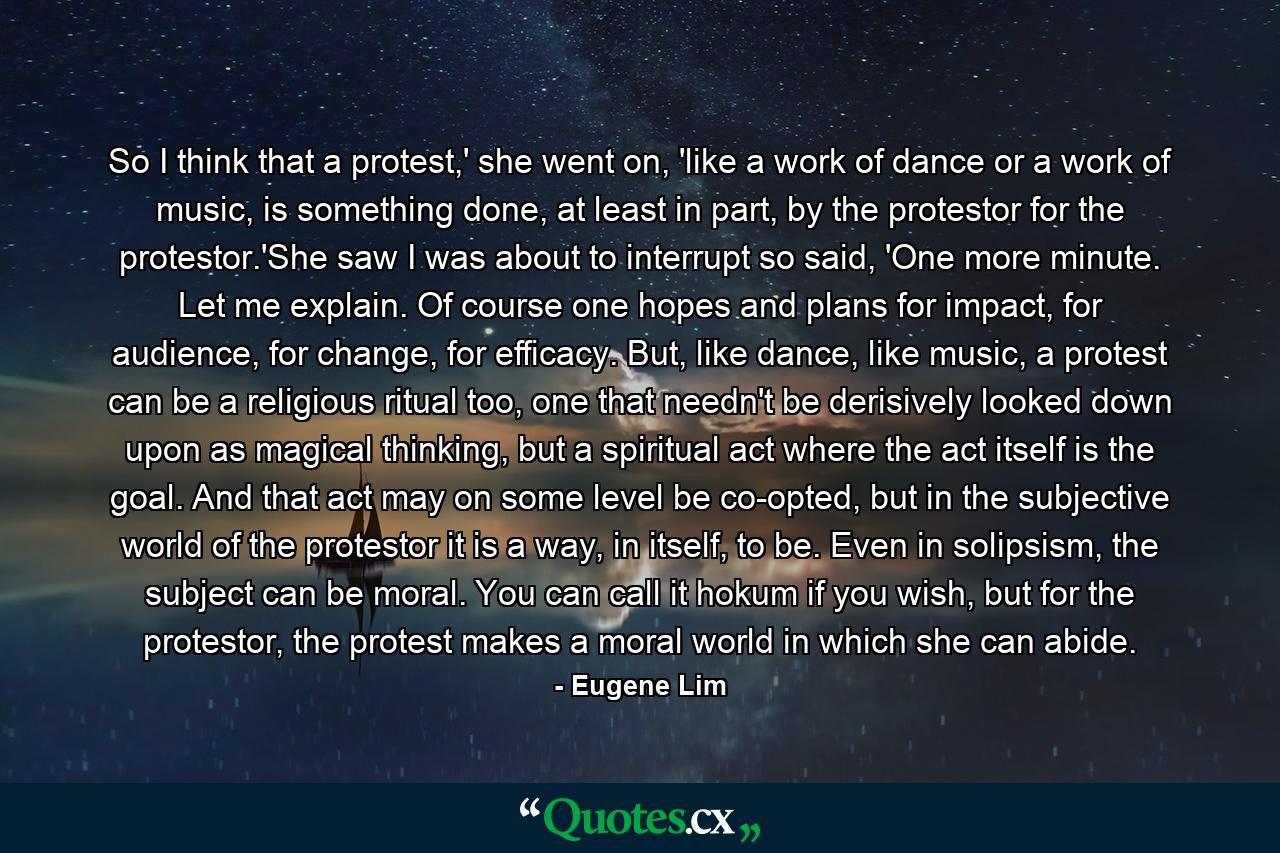So I think that a protest,’ she went on, ‘like a work of dance or a work of music, is something done, at least in part, by the protestor for the protestor.’She saw I was about to interrupt so said, ‘One more minute. Let me explain. Of course one hopes and plans for impact, for audience, for change, for efficacy. But, like dance, like music, a protest can be a religious ritual too, one that needn’t be derisively looked down upon as magical thinking, but a spiritual act where the act itself is the goal. And that act may on some level be co-opted, but in the subjective world of the protestor it is a way, in itself, to be. Even in solipsism, the subject can be moral. You can call it hokum if you wish, but for the protestor, the protest makes a moral world in which she can abide.
